When Is the Next Fed Meeting?
The FOMC is expected to stand pat on interest rates at the next Fed meeting.
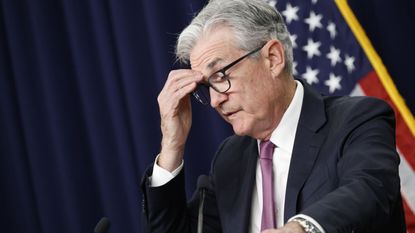

"When is the next Fed meeting?" is a question that hasn't weighed this heavily on anxious investors' minds in probably four decades.
Which is fair enough, really. The worst bout of inflation to hit the U.S. economy in 40 years peaked almost two years ago, and yet the Federal Reserve has yet to conclusively abandon the most aggressive campaign of interest rate hikes since the late Carter and early Reagan administrations.
The central bank's Federal Open Market Committee (FOMC) made the widely expected move of leaving interest rates unchanged when it concluded its last policy meeting in January. If there was any sort of surprise, it was that the Fed appears to have at long last embraced a series of interest rate cuts in 2024.

Sign up for Kiplinger’s Free E-Newsletters
Profit and prosper with the best of expert advice on investing, taxes, retirement, personal finance and more - straight to your e-mail.
Profit and prosper with the best of expert advice - straight to your e-mail.
"The Fed remains on track for rate cuts in 2024, but the economy is too strong for telegraphing anything yet," notes David Russell, global head of market strategy at TradeStation. "We still have almost two months of data, plus Congressional testimony. Jerome Powell has no reason to show his hand at this point. Haste makes waste."
Fed Chair Jerome Powell has said repeatedly that Fed policy is "data dependent." Unfortunately, somewhat mixed economic data aren't conclusively helping the case for lower interest rates.
Although economists as a group have become more optimistic about the path of the economy, surveys show they still put the odds of a recession hitting in the next 12 months at about 50%. They have good reasons to remain cautious. The bond market is awash in inverted yield curves, for one thing, and that's not very reassuring at all. The New York Fed's yield-curve model gives a 61% probability to the U.S. entering a recession over the next 12 months.
Then there's the labor market, which remains stronger than the Fed would probably like. A hot December jobs report revealing a pick up in wage-growth pressures didn't exactly make the case for lower rates.
When you consider the Fed's dual mandate of promoting both "maximum" employment and stable prices against the backdrop of financial sector stress and rising recession odds, no wonder investors are obsessed with the question of "when is the next Fed meeting?"
The next Fed meeting: what to expect
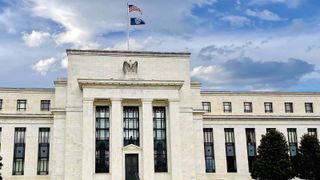
For the record, the central bank's rate-setting committee is called the Federal Open Market Committee (FOMC).
As you can see from the FOMC meeting calendar below, the committee meets eight times a year. These meetings last two days, and conclude with the FOMC releasing its policy decision at 2 pm Eastern time. The Fed chief then holds a press conference at 2:30 pm. (Pro tip: as closely scrutinized as the Fed statement might be, market participants are usually even more keen on what the Fed chair has to say in the press conference.)
As for the next Fed meeting, it begins on March 19 and will end with a policy statement on March 20 at 2 pm Eastern.
The FOMC has the fed funds rate sitting at 23-year high. For now, at least, the market thinks the Fed is set to hit the pause button once again.
Indeed, as of March 7, interest rate traders assigned a 97% probability to the FOMC leaving the short-term federal funds rate unchanged at a target range of 5.25% to 5.50%, according to CME Group's FedWatch Tool.
As for when the Fed will enact its first quarter-point rate cut, traders say there's a 59% chance it comes in June.
For those wondering "when is the next Fed meeting?," have a look at the schedule, courtesy of the FOMC, below.
2024 Fed meetings calendar

- January 30 to 31
- March 19 to 20
- April 30 to May 1
- June 11 to 12
- July 30 to 31
- September 17 to 18
- November 6 to 7
- December 17 to 18
Related Content

Dan Burrows is Kiplinger's senior investing writer, having joined the august publication full time in 2016.
A long-time financial journalist, Dan is a veteran of SmartMoney, MarketWatch, CBS MoneyWatch, InvestorPlace and DailyFinance. He has written for The Wall Street Journal, Bloomberg, Consumer Reports, Senior Executive and Boston magazine, and his stories have appeared in the New York Daily News, the San Jose Mercury News and Investor's Business Daily, among other publications. As a senior writer at AOL's DailyFinance, Dan reported market news from the floor of the New York Stock Exchange and hosted a weekly video segment on equities.
Once upon a time – before his days as a financial reporter and assistant financial editor at legendary fashion trade paper Women's Wear Daily – Dan worked for Spy magazine, scribbled away at Time Inc. and contributed to Maxim magazine back when lad mags were a thing. He's also written for Esquire magazine's Dubious Achievements Awards.
In his current role at Kiplinger, Dan writes about equities, fixed income, currencies, commodities, funds, macroeconomics, demographics, real estate, cost of living indexes and more.
Dan holds a bachelor's degree from Oberlin College and a master's degree from Columbia University.
Disclosure: Dan does not trade stocks or other securities. Rather, he dollar-cost averages into cheap funds and index funds and holds them forever in tax-advantaged accounts.
-
 Stock Market Today: Nasdaq Spirals as Netflix Nosedives
Stock Market Today: Nasdaq Spirals as Netflix NosedivesA big earnings boom for credit card giant American Express helped the Dow notch another win.
By Karee Venema Published
-
 Get These 40 Earth Day Deals and Discounts
Get These 40 Earth Day Deals and DiscountsMonday, April 22, is Earth Day. Many of your favorite retailers are celebrating with deals on sustainable products, recycling services, and more
By Kathryn Pomroy Published
-
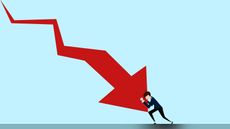 Is A Recession Looming? Two Big Bank CEOs See It That Way
Is A Recession Looming? Two Big Bank CEOs See It That WayRecession is likely, Citi's CEO told a Senate panel today, a sentiment echoed by JP Morgan's chief executive last week.
By Joey Solitro Published
-
 More Signs of Belt-Tightening and a Slowing Economy: The Kiplinger Letter
More Signs of Belt-Tightening and a Slowing Economy: The Kiplinger LetterThe Kiplinger Letter Although fewer banks are tightening lending standards, more businesses and households are feeling the squeeze.
By Rodrigo Sermeño Published
-
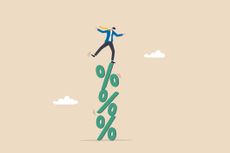 The Era of Super-Low Interest Rates Could Be Over: The Kiplinger Letter
The Era of Super-Low Interest Rates Could Be Over: The Kiplinger LetterThe Kiplinger Letter We’re likely never going back to the historically low rates that prevailed in late 2019 and early 2020.
By David Payne Published
-
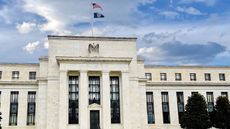 The Fed Holds Interest Rates Steady
The Fed Holds Interest Rates SteadyThe Fed cautions that inflation remains high and it is prepared to adjust its monetary policy ‘as appropriate if risks emerge.’
By Esther D’Amico Published
-
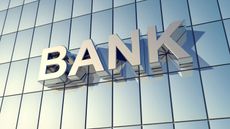 Banks Lost Billions on Bad Loans Last Quarter: Kiplinger Economic Forecasts
Banks Lost Billions on Bad Loans Last Quarter: Kiplinger Economic ForecastsEconomic Forecasts Bank deposits are also down, and more people are tapping into their savings.
By Rodrigo Sermeño Published
-
 Kiplinger Special Report: Key Business Costs for 2024
Kiplinger Special Report: Key Business Costs for 2024Economic Forecasts Looking at business costs for 2024, expect slight cost increases across the board, from insurance rates to shipping expenses. Profits will be up, too.
By John Miley Published
-
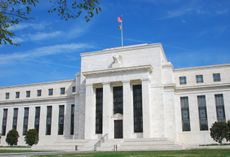 What Is the Federal Funds Rate?
What Is the Federal Funds Rate?The federal funds rate can impact a host of borrowing costs, and thus the entire U.S. economy.
By Jeff Reeves Last updated
-
 Is It Prime Time for Money Market Funds?
Is It Prime Time for Money Market Funds?The Fed's interest rate hike could be a boon for savings accounts. Here's why.
By Seychelle Thomas Published